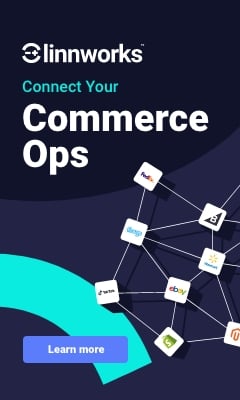Cracking the code of Emotional Loyalty
With more than 90% of retail companies offering their customers some type of loyalty program[1], brands are constantly looking for new ways to distinguish themselves from the competition.
Simply creating a rewards scheme is no longer enough – it takes engagement, personalization, shared values, and much more for clients to get attached to a brand. In a word – it takes emotional loyalty. Emotional connection is the game-changer you need in the highly competitive landscape of marketing and loyalty programs. To understand it better, read our article inspired by a recent e-book from Comarch – “Emoloyalty: From Emotional Connection to Brand Success: The Pathways of Loyalty.”
Why Are Emotions So Crucial for Your Brand’s Success?
According to the Pii/TLC Marketing Worldwide survey from September 2020, 80% of customers say they expect a richer and more emotional relationship with brands. The face of consumerism is undoubtedly changing, and it’s becoming clear that promotions and rewards no longer cut it. Customers want to feel like they matter to a brand, like a brand they interact with genuinely cares about their beliefs, like their transactions are not just about money but a result of an authentic bond.
And companies that know how to achieve this reap the benefits. A report by Harvard Business Review reads that “after a major bank introduced a credit card for Millennials that was designed to inspire emotional connection, use among the segment increased by 70%, and new account growth rose by 40%.”[2] It’s no surprise – after all, people are ruled by emotions. Without them, there is no decision-making. There are no shared values; there’s no taste; there’s no need to purchase certain items or even experiences. And there are no favorite brands.
Meeting the Need for an Emotional Connection
“To build loyalty, you have to provoke a little admiration and empathize with the imagination of the people you are talking to,” says in the Comarch’s e-book Jean-Louis Bischoff, philosopher lecturer at the University of Paris-Est Créteil of history and current fashion events.
With the need for emotional connection growing so strong, there arises a question of what brands can do to address it. This increased emotionality we’ve been seeing is both a chance and a challenge – the key is to put the customer journey at the forefront of your marketing strategy. Thierry Lalanne, Director of Customer Experience at Ipsos France, talks about finding the right emotion to trigger the brand experience and treating emotions as a pillar of customer relationships.
But, more than anything, building an emotional connection with customers involves communication – communication that will lead to a better understanding of your clients’ desires, aspirations, and values. Whether through storytelling, delivering personalized content, or investing in initiatives that show your brand cares (for example, 65% of customers say they want to buy from purpose-driven brands that advocate sustainability[3]) – it’s about turning the tide and linking the traditional transaction-focused approach with one that evokes more positive emotions.
Insights from Industry Leaders: Wisdom from CEOs, Marketing Specialists, and Researchers
The “Emoloyalty: From Emotional Connection to Brand Success: The Pathways of Loyalty” e-book was prepared by Comarch with insights from top loyalty and marketing professionals. Based on their vast experience and deep industry understanding, a lot of them point out the importance of emotional connection in building brand loyalty.
Stéphane Truchi, president of the Board of Directors at Ifop Group, highlights that we live in very volatile, anxious times. With the ever-present social media, people are more vocal about their opinions, experiences, and feelings. To stay relevant, brands must follow that shift and mirror their clients’ challenges.
“In an anxious world, brands need to provide solutions and experiences that resonate with their customers,” agrees Rémy Oudghiri, sociologist and Managing Director of Sociovision at Ifop Group. Her sentiment is echoed by Géraldine Cayzac, Director of Hub Stratégique at Babel agency, who confirms that “(…) the only way a brand can make an impression on its customers’ daily lives is to strike with emotions.”
For a while now, this trend has been inspiring something we can call the transformation of loyalty programs. While focusing on greater personalization and an omnichannel approach in loyalty schemes is nothing new, the tendency is only getting stronger and being taken to the next level.
“Why not reward a customer for wearing my clothes or successfully applying make-up with my products? Why not reward a customer who has created a beautiful garden with my plants and has posted the photo on social networks? Why not invite them to co-create new products? To be part of a community?” proposes Patrice Laubignat, the President of the Club du Marketing Émotionnel. “We need to reverse the paradigm: so far, it has been up to the client to prove they have been loyal to a brand. From now on, it is the brand’s responsibility to prove that it is faithful to its customers.”
Implementing Strategies From the E-book: Practical Tips
With 70% of consumers willing to spend twice as much on a brand if they feel an emotional connection to it, investing in emotional loyalty seems like a great tool for boosting your profits.
But how do you use it?
Here are a couple of practical strategies presented in the Comarch e-book to get you inspired:
Focus on personalization
Nearly 7 consumers out of 10 (69%) consider that a personalized experience would positively influence their loyalty, and 66% expect that brands use their feedback to propose new products and/or services. From utilizing customer purchase history and preferences to create tailored rewards to implementing tiered loyalty programs that acknowledge members’ individual achievements – there’s a lot you can do to include personalization in your customer-brand relationship.
Build a story
Emotion is an important lever for customer engagement and loyalty – brands that want to use their power need to focus on building an authentic and sincere story. It’s not just about promoting products and offering loyalty points (though they matter, too); it’s about relaying the value that lies behind their services, showing that there’s a person behind each brand. It’s how companies can meet their customers’ needs for a more personal and emotional relationship.
Put selling aside
While it’s obvious that the ultimate goal of a customer-brand relationship is selling, putting too much emphasis on the transactional aspect of loyalty can nip any emotional bond in the bud. “[Because I understand] I am the object of commercial practice and know the brand seeks to sell me its products, it directly kills any attempt to create emotion,” confirms Jessica Lavigne, CRM & Loyalty Consultant at Comarch. That’s why she proposes to shift the focus – forget about selling and engage in conversation. Ask the customer about who they are, play on their nostalgia, take an interest in them, and surprise them… The strategies are countless.
Don’t forget about technology
Think emotions and technology don’t mix? Well, think again. According to Matthieu Nicou, Digital Director of Guerlai, “Web 3.0 can (…) create new generations of emotions, building bridges between the real and the virtual by combining technology and environmental protection.” Ben Lipsey, Senior Vice President of Customer Loyalty at Air France, also points out that technology can be an amazing tool for measuring emotional response and connections – as proven by a 2016 project he co-founded at Datakalab, in which his team was studying the facial expressions of panelists to detect public emotions provoked by brands.
Keep up the quality
Last but not least, as much as emotional connection matters, it’s not enough to build long-term customer loyalty. At the end of the day, it’s still the quality of the service or products that makes clients stay. “To engage the consumer, the key point is the quality of the product we offer,” confirms Véronique Rousseau, Marketing Director Yves Rocher France. And statistics prove it – 74% of customers say product quality is the most important factor in keeping them loyal to a brand[4]. So, while it’s definitely important to focus on engagement and emotions, the quality can never pay the price.
Mastering such an elusive concept as emotional loyalty is not easy, but with the right tools and knowledge, it can be possible. Download the Comarch’s “Emoloyalty: From Emotional Connection to Brand Success: The Pathways of Loyalty” e-book and learn how to do it.
[1] https://queue-it.com/blog/loyalty-program-statistics/
[2] https://hbr.org/2015/11/the-new-science-of-customer-emotions














